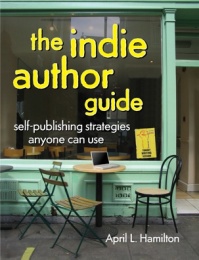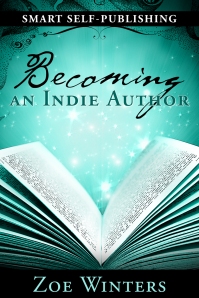Alert: Stay turned to this channel for a special broadcast, Monday, 28 Feb.
Irina Avtsin will tell us all about the power of the word, “No!”.
~~~~~~~~~
{This post is almost a rant and purposefully written in a voice I rarely use…}
A madhouse is where insane persons are confined or a place exhibiting stereotypical characteristics of such a place.
This, to me, right now, is what self-publishing is.
Let me define my terms a bit more precisely:
“Sanity” has roots indicating “healthy condition” or “soundness of mind”. If I temporarily constrict my argument to the term “publishing”, most people who are trying to keep up with the frenetic pace of change in this arena of human experience would, I feel, tend to agree that publishing is not in a healthy condition or showing soundness of mind.
Many of those same people would go further and claim that self-publishing is the medicine needed for the sick field of publishing.
Well…
I’ve been involved in self-publishing for about six years now and the last year has seen me working overtime to come to terms with how to best take advantage of the opportunities that self-publishing seems to offer.
I don’t have space in this post to detail the ills of the traditional publishing route but anyone interested can easily find much to ponder.
So, try to accept one point on a conditional basis: self-publishing can bring a book to market faster and supply the author with higher royalties than traditional publishing, as long as the author is not already on the bestseller lists or in the stable of a publishing house being preened to take the book-world by storm when the right marketing moment arrives.
If the above statement is true, one would think that an author would find it easier to self-publish…
My experience has been that the word “easy” needs to be carefully defined with ample attention being paid to whether said author has what it takes to build their own following and work intensely at experimenting till they find the particular combination of tasks that can assure them a sufficient platform of eager individuals waiting to render them aid on publishing day.
If you are comfortable with building relationships, if you can be honestly altruistic in those relationships, if you can multiply the number of those relationships, if you have the time to attend to them with care and diligence, if you have the money to pay for or can trade for the expertise of editors, artists, and publicity specialists, then, maybe you would say self-publishing is easier than going the traditional route.
The reason I’ve been willing to persevere in the madhouse of self-publishing isn’t because I can easily fulfill all the ifs in the last paragraph.
I will continue to do all I can to successfully self-publish my work-in-progress because I lack the patience to search for an agent who would accept the unusual book I had to write and must publish, because I don’t have a few years to wait while such an agent finds a publisher who thinks my book can sell and negotiates a contract, because I refuse to be paid a royalty that can have itself disappear in paybacks to the publisher if the book doesn’t sell, and because finding an editor I don’t have to pay and supplying cover artwork are something I was able to personally handle.
So, from my perspective, the crumbling house of traditional publishing and the raucous adolescent scene of self-publishing are both “madhouses” but I’m a writer and I have a book I’ve written and I want people to read it and I had to make a choice…
I chose self-publishing.
I’ve written about this topic before in this blog and using the handy Top Tags Cloud in the side panel will lead you to those other musings…
What are your thoughts, theories, experiences, and rants or raves about traditional publishing and self-publishing?
~~~~~~~~~~~~~~~~~~~~~~~~~~~~~~~~~~~~~~~~~~~~~~~~~~~~~~~~~
Follow the “co-author” of Notes from An Alien, Sena Quaren:
On Facebook
On Twitter
AND, Get A Free Copy of Our Book





